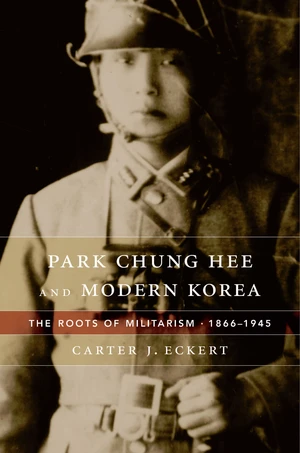This first volume in a two-part study examines the origins of South Korean authoritarianism as personified by the militant political leader. For South Koreans, the twenty years from the early 1960s to late 1970s were the best and worst of timesâa period of unprecedented economic growth and of political oppression that deepened as prosperity spread. In this masterly account, Carter J. Eckert finds the roots of South Koreaâs dramatic socioeconomic transformation in the countryâs long history of militarizationâa history personified in South Koreaâs paramount leader, Park Chung Hee. In Park Chung Hee and Modern Korea, Eckert reveals how the foundations of Parkâs leadership were established during the period of Japanese occupation. As a cadet in the Manchurian Military Academy, Park and his fellow officers absorbed the Imperial Japanese Armyâs ethos of victory at all costs and absolute obedience to authority. When Park seized power in 1961, he applied this ethos to the project of Korean modernization. Korean society under Park exuded a distinctively martial character, Eckert shows. Its hallmarks included the belief that the army should intervene in politics in times of crisis; that a central authority should manage the countryâs economic system; and that the state should maintain a strong disciplinary presence in society, reserving the right to use violence to maintain order. âA milestone in the literature of modern East Asia.â âBruce Cumings, author of Koreaâs Place in the Sun
Price history
▲54.15%
Jan 30, 2023
€40.36
▼-35.13%
Jan 28, 2023
€26.18
Jan 24, 2023
€40.36

